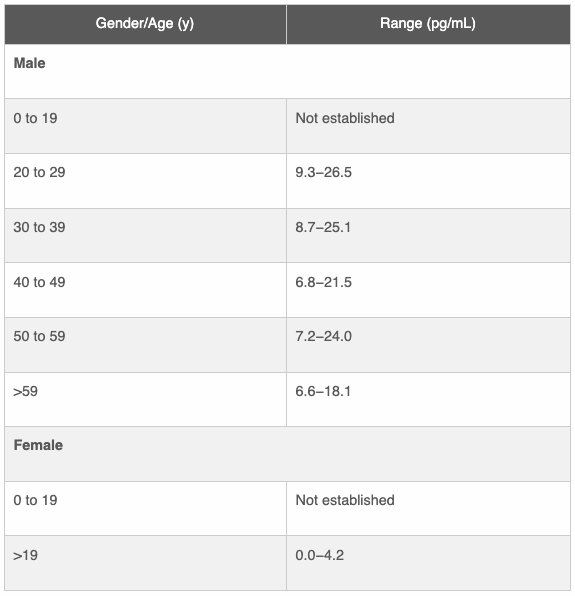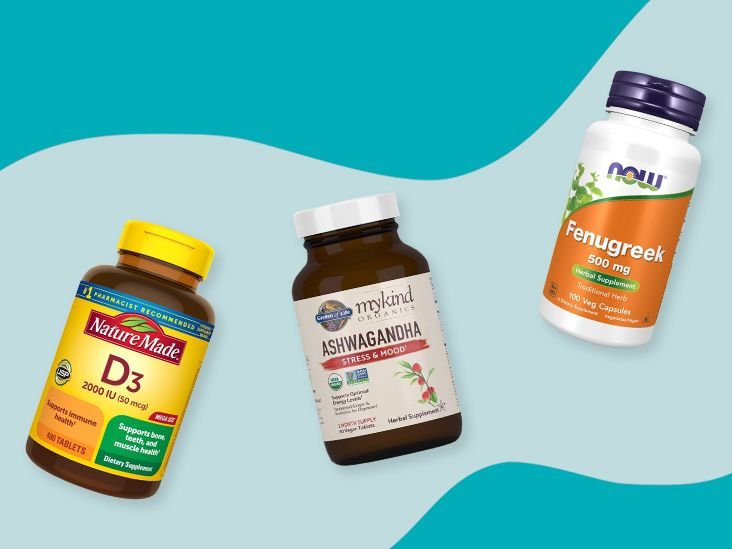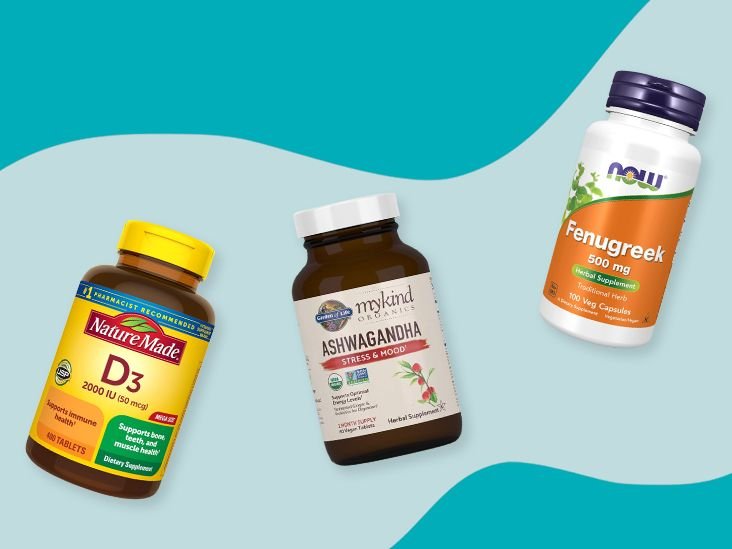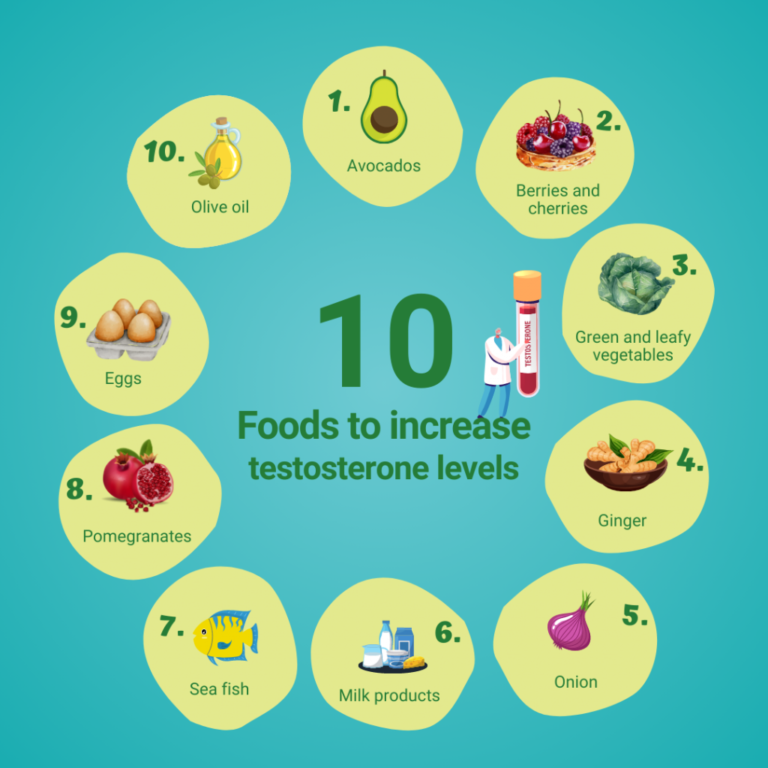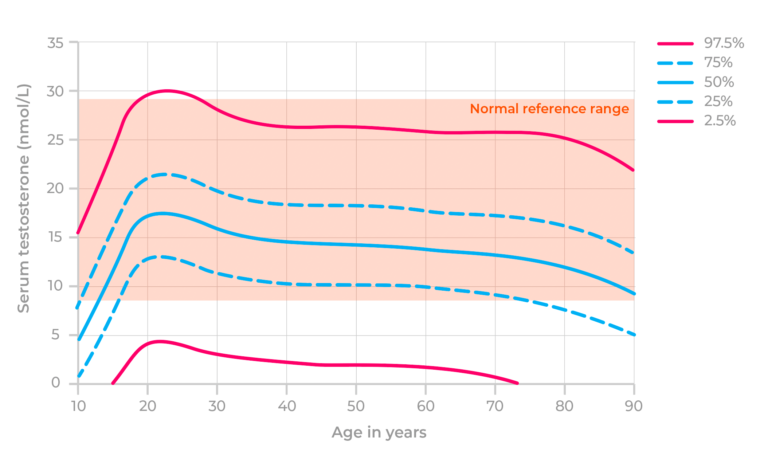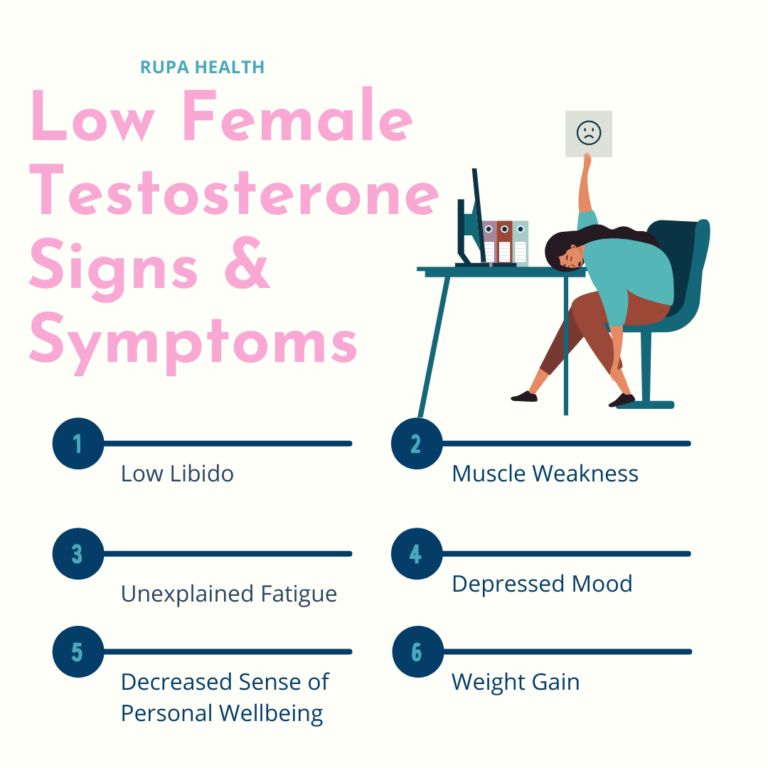What Causes Low Testosterone in Young Males: Unveiling the Truth
Low testosterone in young males can be caused by genetic disorders, medical conditions, or lifestyle factors. Common causes include obesity, infections, and injuries to the testicles.
Low testosterone levels in young males can significantly impact their physical and mental health. This hormone is crucial for muscle mass, bone density, and overall well-being. Genetic disorders like Klinefelter syndrome or conditions such as mumps orchitis can interfere with testosterone production.
Lifestyle choices such as poor diet, lack of exercise, and excessive alcohol use also contribute. Stress and sleep deprivation further exacerbate the issue. Early diagnosis and treatment are essential for managing symptoms and preventing long-term complications. Understanding the underlying causes can help in developing effective strategies for maintaining healthy testosterone levels.
Biological Factors
Low testosterone in young males can be due to various biological factors. These factors can significantly affect hormone levels. Understanding these factors helps in addressing the root cause effectively.
Genetic Influences
Genetics can play a crucial role in testosterone levels. Some males inherit genes that affect hormone production. This can lead to low testosterone levels even at a young age. Genetic conditions like Klinefelter syndrome impact testosterone levels. This condition involves an extra X chromosome in males. It causes the testes to produce less testosterone. Another genetic disorder, Kallmann syndrome, also affects hormone levels. It impacts the development of the hypothalamus, which regulates testosterone.
Endocrine Disorders
Endocrine disorders can disrupt hormone production. The endocrine system includes glands that produce hormones. Any disorder in this system can lead to low testosterone. One common disorder is hypogonadism. It occurs when the testes produce little or no testosterone. Hypogonadism can be primary or secondary. Primary hypogonadism involves issues in the testes. Secondary hypogonadism affects the hypothalamus or pituitary gland.
| Endocrine Disorder | Impact on Testosterone |
|---|---|
| Hypogonadism | Low testosterone production |
| Hyperthyroidism | Disrupts hormone balance |
Other endocrine disorders like hyperthyroidism can also affect testosterone. This condition involves an overactive thyroid gland. It disrupts the balance of hormones in the body. As a result, testosterone levels may drop.
:max_bytes(150000):strip_icc()/Low-testosterone-5216619_txt_final-f54332d26a124869bb49e110d5d09d2f.png)
Credit: www.verywellhealth.com
Lifestyle Influences
Understanding what causes low testosterone in young males is crucial. Lifestyle influences play a significant role. Factors like diet, exercise, and daily habits can impact testosterone levels. Addressing these can help maintain healthy levels of this essential hormone.
Diet And Nutrition
Diet plays a vital role in testosterone production. Eating the right foods can make a difference.
- Zinc: Found in meat, shellfish, and legumes. Essential for testosterone.
- Vitamin D: Get it from sunlight and foods like fish and eggs.
- Healthy Fats: Avocados, nuts, and olive oil support hormone health.
- Avoid Processed Foods: These can lower testosterone levels.
Exercise And Physical Activity
Exercise is another critical factor affecting testosterone levels. Regular physical activity helps maintain healthy hormone levels.
- Strength Training: Lifting weights can boost testosterone.
- High-Intensity Interval Training (HIIT): Short bursts of intense exercise are effective.
- Consistency: Regular exercise is key. Aim for several days a week.
- Avoid Overtraining: Too much exercise can have the opposite effect.
Maintaining a balanced diet and regular exercise can help manage testosterone levels. Paying attention to these lifestyle influences is essential for young males.
Environmental Factors
Environmental factors can significantly impact testosterone levels in young males. These factors include exposure to toxins and stress. Understanding these can help in managing and potentially reversing low testosterone levels.
Exposure To Toxins
Young males are often exposed to various toxins in their environment. These toxins can include chemicals in plastics, pesticides, and industrial pollutants. Such chemicals are known as endocrine disruptors. They can interfere with hormone production and regulation.
Common sources of endocrine disruptors:
- Plastic containers and bottles
- Pesticides on fruits and vegetables
- Industrial pollution in air and water
- Personal care products containing parabens and phthalates
Reducing exposure to these toxins can help maintain healthy testosterone levels. Choose organic foods, use glass containers, and avoid products with harmful chemicals.
Impact Of Stress
Stress is another major environmental factor affecting testosterone levels. Young males experiencing high levels of stress may see a decline in testosterone. Stress triggers the release of cortisol, a hormone that can reduce testosterone production.
Common stressors include:
- Academic pressures
- Relationship issues
- Financial problems
- Lack of sleep
Managing stress is crucial. Techniques like exercise, mindfulness, and proper sleep can help reduce stress levels. This, in turn, supports healthy testosterone production.
In summary, environmental factors like toxin exposure and stress significantly impact testosterone levels. By reducing toxin exposure and managing stress, young males can maintain healthy hormone levels.

Credit: www.singlecare.com
Medical Conditions
Medical conditions can significantly impact testosterone levels in young males. These conditions disrupt the body’s ability to produce hormones. Let’s explore some common medical conditions that cause low testosterone.
Chronic Illnesses
Chronic illnesses can lower testosterone in young males. Diabetes is one common illness. It affects the body’s hormone production. Obesity is another factor. Extra fat tissue converts testosterone to estrogen. Kidney disease also impacts hormone levels. It disrupts the balance of hormones in the body.
Medications
Certain medications can reduce testosterone levels. Here are some examples:
- Opioids: Painkillers can lower hormone levels.
- Glucocorticoids: These are anti-inflammatory drugs. They affect hormone production.
- Antidepressants: Some types can reduce testosterone.
- Chemotherapy: Cancer treatment impacts hormone levels.
Understanding these medical conditions can help in managing low testosterone. It’s important to consult healthcare professionals for proper diagnosis and treatment.
Psychological Factors
Psychological factors play a key role in low testosterone. Young males often face many mental and emotional challenges. These challenges can affect hormone levels. Let’s explore the psychological factors in detail.
Mental Health Issues
Mental health issues like depression and anxiety can lead to low testosterone. These conditions increase stress levels. High stress affects the body’s hormone production.
Young males with mental health issues often have lower energy. They may also feel less motivated. This can affect their overall health and testosterone levels.
Emotional Wellbeing
Emotional wellbeing is crucial for hormonal balance. Feelings of sadness or emotional distress can impact testosterone. Young males with emotional issues may experience mood swings. This can further lower their hormone levels.
Maintaining emotional wellbeing involves healthy relationships and a positive mindset. A supportive environment helps in balancing hormones.

Credit: trtuk.co.uk
Symptoms And Diagnosis
Low testosterone in young males can be challenging. Understanding the symptoms and diagnosis is crucial for effective treatment.
Common Symptoms
Young males with low testosterone may experience a variety of symptoms. Recognizing these signs early can help in seeking timely medical advice.
- Fatigue and lack of energy
- Decreased muscle mass
- Mood swings and irritability
- Low libido or reduced sexual desire
- Difficulty concentrating
- Increased body fat
- Depression
These symptoms can impact daily life. They may also affect emotional well-being.
Diagnostic Tests
Doctors use several diagnostic tests to identify low testosterone levels. Early diagnosis ensures better management.
| Test Name | Description |
|---|---|
| Blood Test | Measures testosterone levels in the blood |
| Saliva Test | Another method to measure hormone levels |
| Physical Exam | Checks for physical signs of low testosterone |
| Medical History | Evaluates past health issues and symptoms |
Doctors may also ask about lifestyle habits and stress levels. This information helps in understanding the root cause.
Addressing low testosterone early can improve quality of life. Seek medical advice if you experience these symptoms.
Treatment Options
Low testosterone in young males can affect daily life. Understanding treatment options is crucial. Both lifestyle changes and medical interventions offer solutions. Each method has unique benefits. Let’s explore these treatments in detail.
Lifestyle Changes
Improving lifestyle can boost testosterone levels. Here are some effective methods:
- Exercise Regularly: Weight lifting and high-intensity interval training (HIIT) are effective.
- Healthy Diet: Eat foods rich in zinc, vitamin D, and healthy fats.
- Adequate Sleep: Aim for 7-9 hours of sleep each night.
- Stress Management: Practice mindfulness or yoga to reduce stress.
- Avoid Alcohol and Smoking: Both can lower testosterone levels.
Medical Interventions
When lifestyle changes are not enough, medical treatments may help. Here are some options:
| Treatment | Description |
|---|---|
| Testosterone Replacement Therapy (TRT) | Involves injections, patches, or gels to increase levels. |
| Medications | Clomiphene citrate and hCG can stimulate testosterone production. |
| Addressing Underlying Conditions | Treat conditions like obesity or diabetes that affect levels. |
Each treatment has its pros and cons. Consult with a healthcare professional for personalized advice. Lifestyle changes often have long-term benefits. Medical interventions can provide quicker results. Combining both approaches may offer the best outcomes.
Frequently Asked Questions
What Is Causing Low Testosterone In Young Men?
Low testosterone in young men can be caused by obesity, poor diet, lack of exercise, stress, and sleep disorders. Other factors include genetic conditions, medications, and substance abuse.
Why Is My Testosterone Low In My Early 20’s?
Low testosterone in your early 20s can result from stress, poor diet, lack of exercise, or medical conditions. Consult a doctor.
What Deficiency Causes Low Testosterone?
Vitamin D, zinc, and magnesium deficiencies can cause low testosterone levels. Ensuring adequate intake of these nutrients helps maintain healthy hormone levels.
Can A 25 Year Old Male Have Low Testosterone?
Yes, a 25-year-old male can have low testosterone. Factors include genetics, lifestyle, and health conditions. Consult a doctor for diagnosis.
Conclusion
Understanding the causes of low testosterone in young males is crucial for effective treatment. Factors like lifestyle, health conditions, and genetics play significant roles. Early diagnosis and proper medical consultation can help manage symptoms. Awareness and proactive measures can improve overall well-being and quality of life for young males facing this issue.

